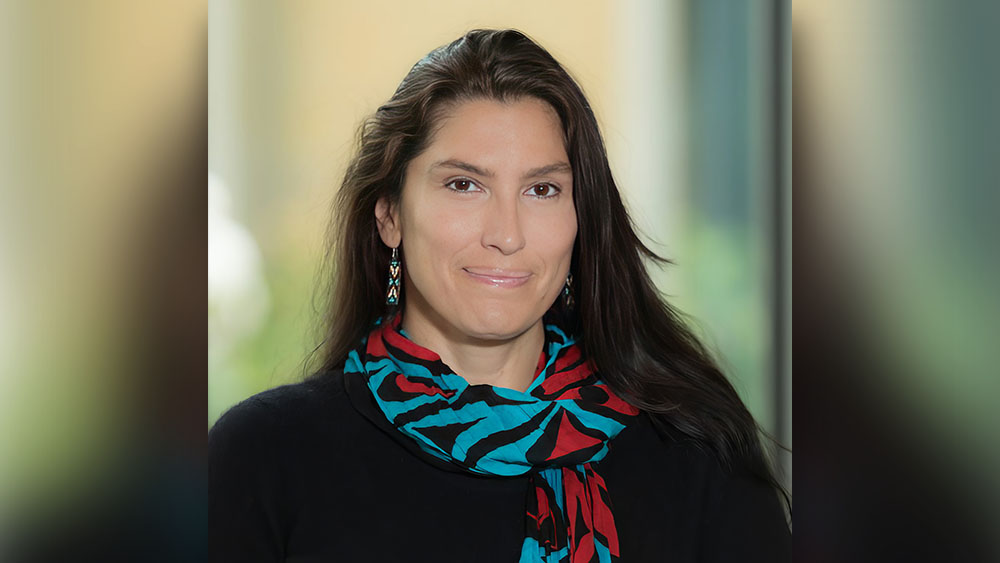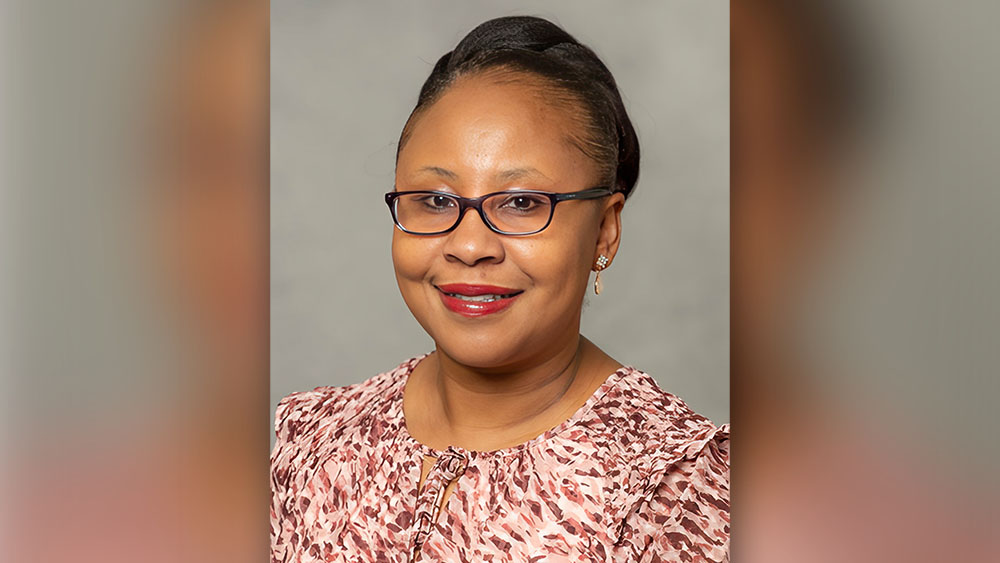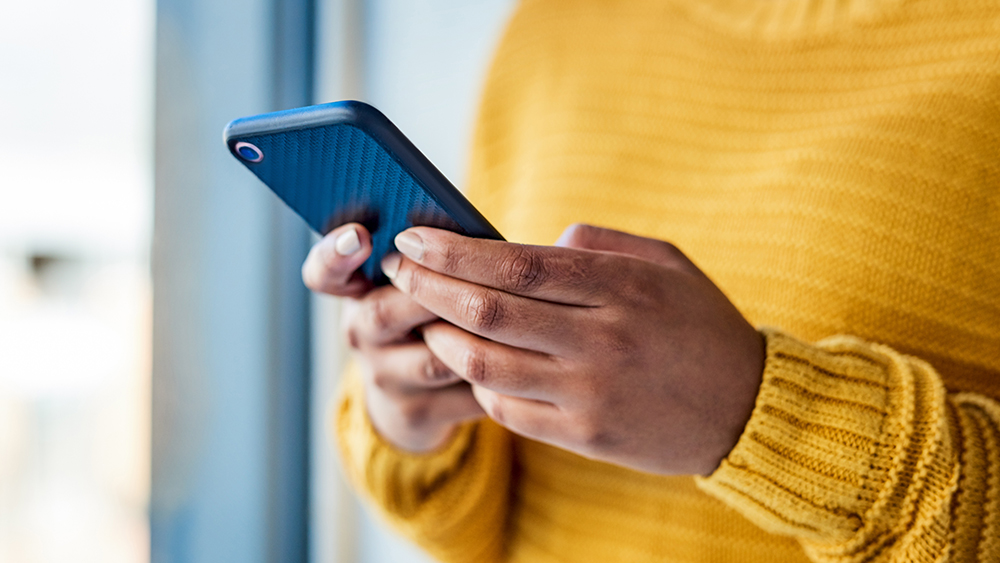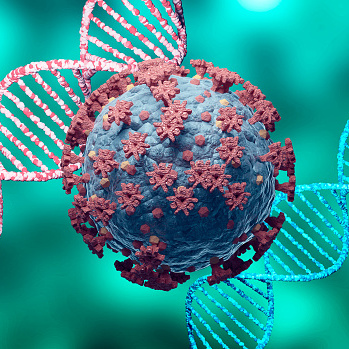In early 2020, Jeneile Luebke, Ph.D., RN, was interviewing people for her doctoral dissertation. As an enrolled member of the Bad River Band of Lake Superior Chippewa Indians, Dr. Luebke was interested in understanding intimate partner violence (IPV) among American Indian/Alaska Native (AI/AN) and First Nations women living in Wisconsin.
Just as she was getting started, Wisconsin, like many states, issued a stay-at-home order as a way to protect people from COVID-19.
“The stay-at-home orders were being applied right as I was beginning data collection, and I noticed really concerning patterns,” said Dr. Luebke. “It seemed like a lot of my study participants were telling me that things were getting worse, especially when people were not working or they were staying at home with their abuser.”
IPV disproportionately affects Black and AI/AN women, and the pandemic may have made it worse. To learn more, Dr. Luebke, now an assistant professor in the School of Nursing at the University of Wisconsin–Madison, and Lucy Mkandawire-Valhmu, Ph.D., RN, FAAN, professor at the University of Minnesota School of Nursing, are studying AI/AN and Black women’s experience of IPV during the early days of the pandemic. They hope to understand factors that made it easier or more difficult for women to reach out for help. Their research is supported by the National Institute on Minority Health and Health Disparities (NIMHD). They hope it will help inform policies and health care practices to better support AI/AN and Black survivors of IPV.

Jeneile Luebke, Ph.D., RN, collaborator on research into the impact of COVID-19 on help seeking of American Indian and Black women experiencing IPV. Image courtesy of University of Wisconsin–Madison.

Jeneile Luebke, Ph.D., RN, collaborator on research into the impact of COVID-19 on help seeking of American Indian and Black women experiencing IPV. Image courtesy of University of Wisconsin–Madison.
IPV in historical context
Black and AI/AN women are disproportionately affected by IPV: According to the 2010 National Intimate Partner and Sexual Violence Survey, up to 84.3 percent of AI/AN women have experienced IPV in their lifetime. The 2016/2017 National Report on Intimate Partner Violence found that 53.6 percent of Black women reported experiencing IPV in their lifetime.
Although these statistics are alarming, the researchers say that high levels of IPV against AI/AN and Black women is not surprising, given historical context. Structural racism is embedded in many social systems and informs how Black and AI/AN people are treated. For example, redlining is the practice by which financial institutions deny services to customers who live in areas alleged to be at too great a financial risk. This practice has resulted in housing inequities and racial segregation in cities across the United States. These segregated neighborhoods often have fewer essential resources, such as reliable public transportation and access to high-quality health care.
Dr. Mkandawire-Valhmu was at the University of Wisconsin–Milwaukee when this project was first funded and has worked with community partners to support IPV survivors in the area. “Milwaukee is one of the most racially segregated cities in the country, which has many implications on Black women’s health, well-being, and life expectancy. When women experience IPV, it creates an added layer of difficulty for them to seek help,” Dr. Mkandawire-Valhmu said.
Getting help for IPV can be difficult in the best of times. As a survivor of IPV herself, Dr. Luebke understands how hard it can be for a survivor to leave her abuser. Many survivors feel shame and judgment from people who should be helping them, which makes it feel almost impossible to ask for help. “We as a society, but especially health care providers and law enforcement, need to do a better job at reserving our judgment. Until someone experiences IPV, they’ll never understand all the complex reasons why someone would choose to stay,” she said.
“We want to develop resources and policies that account for women who experience violence and ensure survivors have access to help.” —Lucy Mkandawire-Valhmu, Ph.D., RN, FAAN
A lack of support and resources
In spring 2020, across the world, there was evidence that incidents of IPV were increasing. Various cities across the United States reported a significant increase in calls to police and arrests related to domestic violence after the stay-at-home orders were instated.
In her dissertation interviews, Dr. Luebke heard many reasons why her study participants were having difficulty getting help in the early months of the pandemic. Because of social distancing guidelines and restrictions on gatherings, IPV support groups stopped meeting in person. While many activities moved to video conferencing during that time, many community groups did not have the resources to support virtual meetings. Even if there were virtual meetings, this would not be a feasible option for women living with a violent partner. Social distancing also meant that shelters were unable to accept new residents, so a woman who was ready to leave no longer had that option.
Dr. Mkandawire-Valhmu and Dr. Luebke recognized that the COVID-19 pandemic created more roadblocks for Black and AI/AN survivors, women who were already disproportionately affected by IPV and already had many issues with getting help. So the pair set out to learn more.

National Domestic Violence Hotline
Resources for people experiencing IPV, including free, confidential ways to call, chat, and text for help.

Lucy Mkandawire-Valhmu, Ph.D., RN, FAAN, principal investigator on the impact of COVID-19 on help seeking of American Indian and Black women experiencing IPV. Image courtesy of University of Minnesota.

Lucy Mkandawire-Valhmu, Ph.D., RN, FAAN, principal investigator on the impact of COVID-19 on help seeking of American Indian and Black women experiencing IPV. Image courtesy of University of Minnesota.
A community-based approach to IPV research
Any research related to IPV requires careful planning and collaboration with trusted community partners, Dr. Luebke said. The researchers must ensure that IPV survivors feel safe participating in the study and that the questionnaires being used to collect data are culturally appropriate for Black and AI/AN women. “It’s important that this research experience does not feel like academics are coming into these communities, gathering data, and leaving. We are creating long-term, ongoing partnerships with community agencies and doing the work in partnership with the community and survivors,” she said.
Dr. Mkandawire-Valhmu and Dr. Luebke already had strong relationships with community agencies in urban and rural areas across Wisconsin when they proposed this research project. They worked closely with people from those agencies and other organizations in planning their research. They also received input from a community advisory board made up of IPV advocates and survivors to ensure that the voice of IPV survivors is heard during the research planning process. The researchers planned to find participants through their community partners.
Learning from the past
As of summer 2022, the researchers were in the early stages of enrolling participants and collecting data. During the course of the study, the researchers will interview survivors about their experiences with seeking help during the COVID-19 pandemic, with the goal of identifying barriers and facilitators — factors that make it harder and easier to reach out for help. The team will also collect data about factors that may have been affected by the pandemic stay-at-home orders, including mental health, employment and home life, and the severity and types of violence the survivors experienced.
The researchers hope the results of their study will help community agencies better support IPV survivors. This could mean providing training and resources or partnering with law enforcement and health care workers.
For example, nurses — like Dr. Mkandawire-Valhmu and Dr. Luebke, who both have nursing backgrounds — are often the first people to interact with IPV survivors. Results from this study could empower nurses by giving them knowledge and resources, especially about the unique needs of Black and AI/AN women. Training nurses in understanding IPV could make it easier for survivors to get help.
The researchers also hope their work could lead to discussions with the justice or legislative systems to enact policy-level changes. Although the pandemic lockdown was unique, there are other cases where people are trapped with their partners, such as after natural disasters.
“We need to be better prepared for the next pandemic and other emergency situations, such as a weather event. We want to develop resources and policies that account for women who experience violence and ensure survivors have access to help,” said Dr. Mkandawire-Valhmu.
Sources
- Boserup, B., McKenney, M., & Elkbuli, A. (2020). Alarming trends in US domestic violence during the COVID-19 pandemic. American Journal of Emergency Medicine, 38(12), 2753-2755. https://doi.org/10.1016/j.ajem.2020.04.077
- Leemis, R. W., Friar, N., Khatiwada, S., Chen, M. S., Kresnow, M., Smith, S. G., Caslin, S., & Basile, K. C. (2022). The National Intimate Partner and Sexual Violence Survey: 2016/2017 Report on Intimate Partner Violence. National Center for Injury Prevention and Control, Centers for Disease Control and Prevention. Retrieved from https://www.cdc.gov/violenceprevention/pdf/nisvs/nisvsreportonipv_2022.pdf
- Rosay, A. B. (2016). Violence Against American Indian and Alaska Native Women and Men. National Institute of Justice. Retrieved from https://nij.ojp.gov/topics/articles/violence-against-american-indian-and-alaska-native-women-and-men
- Turner, M. A., & Greene, S. Causes and Consequences of Separate and Unequal Neighborhoods. Urban Institute. Retrieved from https://www.urban.org/racial-equity-analytics-lab/structural-racism-explainer-collection/causes-and-consequences-separate-and-unequal-neighborhoods
- United Nations. (2020). COVID-19 and Ending Violence Against Women and Girls. UN Women. Retrieved from https://www.unwomen.org/en/digital-library/publications/2020/04/issue-brief-covid-19-and-ending-violence-against-women-and-girls
 An official website of the United States government
An official website of the United States government


